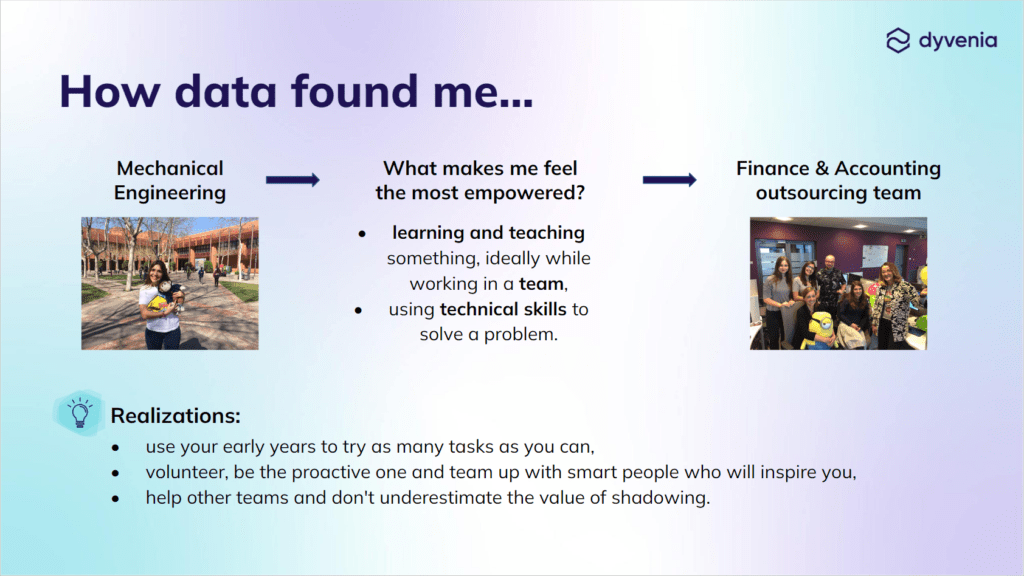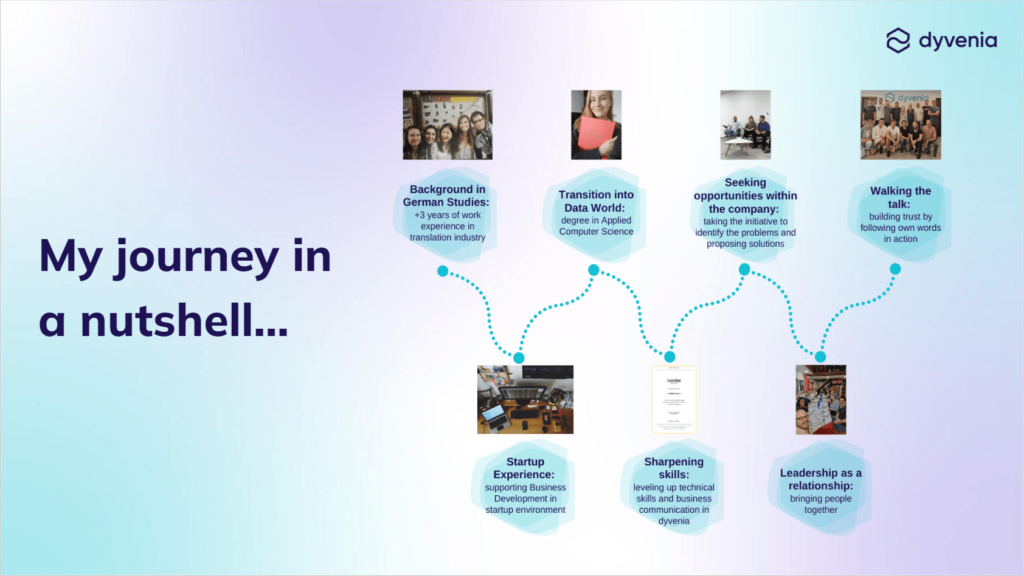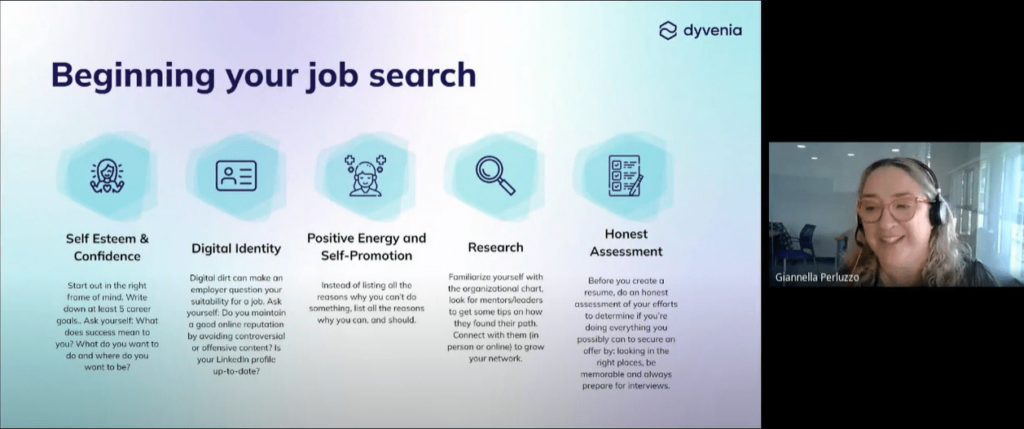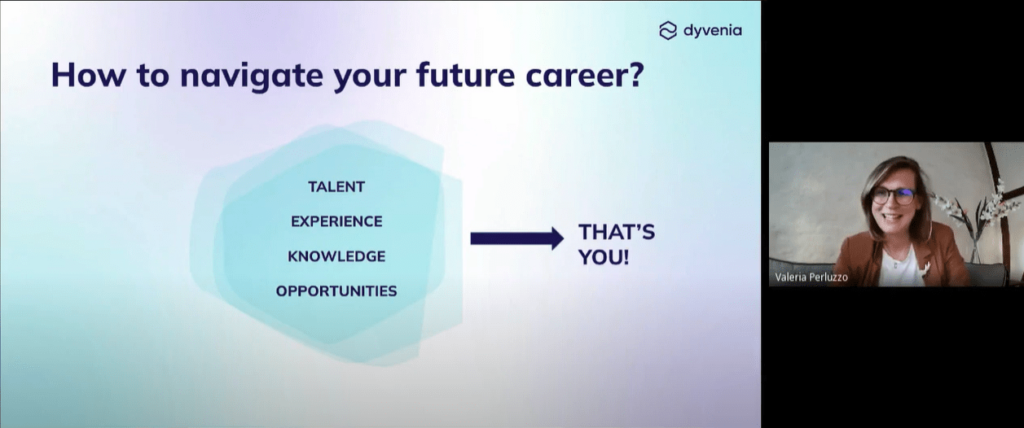The role of a data scientist has consistently been ranked among the top three best jobs in America by Glassdoor since 2016, and the demand for data professionals in the job market has increased by a staggering 650% since 2012 (according to LinkedIn). And if you’re still not convinced, the U.S. Bureau of Labor Statistics projects that employment in this field will grow by 21% (yes, you read that right) by 2031, surpassing the average growth rate for other occupations.
Despite the promising projections and the increasing demand for data professionals, there is still a discouraging reality: a significant gender gap persists in this field. Shockingly, only 20.4% of data specialists in the US are women. It’s a puzzling figure, especially when we consider the significant contributions women have made to the development of technology throughout history.
At our last event, we took a deep dive into the topic of women in data. Not only did we peak into the past, but we also heard from some of the most experienced female data practitioners at dyvenia and picked up some tips and tricks from our HR and development experts. Our primary goal was to encourage women to pursue a career in the dynamic field of data. But hey, no matter the gender, we can all benefit from this knowledge. We promise that anyone aspiring to a career in this field will gain something from this event.
If you prefer watching over reading, head over to our youtube channel where you can watch the full recording of the event.
So, summing up—if you’re looking for guidance on how to launch your career in data, or you’re simply looking for inspiration to further your growth—this article is for you! Enjoy!
Changing the narrative
As our Data Analyst Angel and our Junior Data Engineer Angelika proved, it’s fascinating to look back at history and see the significant contributions that women have made to the development of technology. Did you know that Ada Lovelace wrote the world's first computer program in the mid-1800s? And that Florence Nightingale is considered to be a pioneer of data visualization? These women broke barriers and paved the way for future generations of female technologists. Other notable women in the field include Hedy Lamar, whose inventions helped make Wi-Fi possible, and Grace Hopper, whose groundbreaking work on compilers and programming languages laid the foundation for modern computing. And let’s not forget Margaret Hamilton, whose contributions were essential to men’s first landing on the moon—as Barack Obama once noted “Our astronauts did not have much time, but thankfully, they had Margaret Hamilton”.

The influence of these remarkable women continues to inspire many today, especially women trying to make their way in the male-dominated data industry. Why though the gender gap is so huge? Why are women still playing a supporting role in the tech world, according to many?
Keep digging: Valeria’s journey.

While still pursuing her studies in mechanical engineering, Valeria’s curiosity led her to pursue numerous internships and volunteer opportunities in diverse fields. It was through these experiences that she discovered her passion for learning new things, sharing knowledge, and using her technical skills to solve problems, all while collaborating with a team. “All of those opportunities also gave me a chance to learn about the bigger picture” - she reflected. With an open mind, Valeria explored career paths beyond her field of education.
She found a role in finance and accounting, where she dealt with a large amount of daily generated data. She became almost obsessed with process drilling and volunteered for every opportunity to streamline workflows. Her persistence paid off when she was offered a position on the automation team and started using simple yet powerful tools like VBA and SQL, transforming her view of data.
“Try things out. Don't be afraid to do something”
After succeeding in the financial industry, she was given the opportunity to move on from her previous job and pursue a career as a data specialist. Though hesitant at first because she didn’t tick all the boxes on the 'expectations' list, Valeria applied for the job on the recommendation of a colleague. Despite of her feeling unprepared and overwhelmed, she took the initiative to educate herself on the role and eventually secured the position.
With her mentors' help, Valeria gained more confidence and began to consider taking on a leadership position. She soon realized that authentic leadership entails more than just managing others; it also involves the ability to mentor, motivate, and generate support for one's ideas. By focusing on developing her leadership skills, she worked her way up to become the Head of Analytics at dyvenia, where she now successfully oversees a team of more than twenty individuals.

What can we learn from Valeria?
- Utilize your early years to explore different tasks and opportunities—volunteer, be proactive, and work with inspiring individuals. At the beginning of your career, don’t be afraid to take up tasks outside your job description, and don't underestimate the value of shadowing. The risk is low, so seize the chance to gain experience.
- Build relationships on the way and make sure people know your strengths. Support others in different teams as they might have career opportunities for you in the future.
- Track your milestones and openly discuss your growth with your manager. Seek feedback (and be ready to take it). Remember that self-recognition is vital for self-motivation—as Valeria said: “It is what really keeps you going and what gets you out of bed in the morning”.
- Keep learning and surround yourself with people smarter than you. Don't underestimate the power of coaching; find, recognize, and support your mentor.
- If you have ideas and can motivate people, you are already a leader. Being a leader is not just about being someone’s superior. Act as a leader, and formal leadership positions will follow.
- Lastly, remember that Data is everywhere. Keep digging to find solutions.
Most likely, you will never be 100% ready: Iza’s story.

Iza’s career path may not have seemed like an obvious one at first. Starting in linguistics, she never imagined herself working in IT —“I would never really picture myself working with data or anything IT-related. I never really liked math.” Iza first worked in the translation industry, focusing mainly on project and finance management. Later, she can’t remember how, she landed in an investment company where she was responsible for business development. This position sparked her interest in data and its many applications.
“I never really thought about becoming a leader…”
Though naturally, she gravitated toward different opportunities within the company. Even though Iza never felt completely ready for what was coming, she took the initiative whenever possible. She surrounded herself with supportive colleagues and mentors, who helped her progress in her career. As she moved up the ranks, she realized that leadership was not just about managing people but also about building relationships, fostering trust, and bringing people together.
As a leader, Iza is focused on being authentic, building trust with the people around her, and ensuring her actions align with her words.

What we can learn from Iza’s journey:
- Trust your skills. Transitioning to another field doesn’t make your previous experience obsolete. Embrace your off-field knowledge and approach problems from different angles to bring in new perspectives.
- Try the unknown. Opportunities tend to be messy. Even if you don’t feel 100% ready for what life serves, calculate the risk, and if the impact does not overwhelm you, use this chance to build your confidence and resilience.
- Make space for fun. Remember to bring in some joy while striving for a career change. Not all the work will be a bed of roses but still seek opportunities to work on tasks that unlock your potential and motivation.
How to land a job in data
Searching for a job is always a challenging task, especially when transitioning to a new industry. Gianella, our People Partner responsible for talent acquisition at dyvenia, shares her insights on the top five factors she considers when recruiting candidates:
Self-Esteem & Confidence: To begin on the right footing, you need to have the proper mindset. Think about at least five professional goals and ask yourself: What does success mean to me? What do I want to do, and where do I want to be?
Digital Identity: Your digital identity can significantly impact your job search. Ask yourself: Do I maintain an excellent online reputation by avoiding controversial or offensive content? Is my LinkedIn profile up-to-date?
Positive Energy and Self-Promotion: Are you taking action or are you stuck overthinking? Focus on what you can do and why you should do it, and don’t dwell on negative thoughts.
Research: Get acquainted with the company's organizational chart and seek out mentors or leaders who can offer insights on how they navigated their career paths. Look for opportunities to connect with them in person or online and expand your professional network.
Honest Assessment: Before creating a resume, evaluate your job search efforts honestly and align your action steps with the job opportunity you’re looking for. This includes searching in appropriate places, making yourself memorable, and consistently preparing for interviews.

You received a job offer. What’s next?
After all the hard work you poured into your job search, it’s almost time to celebrate. But before you open the champagne, remember these five points when signing your offer:
Negotiate your salary package: Don't accept the first offer you receive. Negotiating the compensation might be uncomfortable, but it is expected, and companies always build some wiggle room into their offers. If you haven’t already, research the current market value for your position and use your findings to create a baseline to assess your skills and determine the value you bring to the company. If your potential employer can’t meet your salary expectations, ask for other forms of compensation such as additional benefits or more vacation days.
Use your voice: Don't expect your work to speak for itself. Promote yourself by speaking up about your ideas, contributions, and achievements. Look for opportunities to naturally bring up your achievements and make sure your coworkers are aware of your skills and continuous growth.
Take credit and accept praise: Don't just pass credit off to others. When you respond to praise by deflecting, you give away your power and devalue your role and yourself. Instead, acknowledge others in a way that doesn't take away from your own contribution and seize the opportunity to elaborate on your accomplishments.
Use powerful language: Be direct and lead with the bottom line first when communicating. Use strong language and avoid ending your statements with questions. Silence can be used to your advantage, especially in negotiation, by stating your case and waiting for the other person to respond before speaking.
Establish your boundaries, and stick to them: Know your priorities and set boundaries to maintain your work-life balance. Women especially seem to struggle with saying no and setting boundaries, but compromising your integrity or family for a job or company is not worth it. Don't try to please everyone all the time. It's not possible. Set boundaries and stick to them to avoid finding yourself in unmanageable positions.
Make the most of your data career
Landing a job is a significant achievement, but it should not mark the end of your learning and development journey. Staying curious and polishing and expanding your skills are essential, especially in the ever-changing tech industry. That’s why, to stay on top of your game, you need to keep pushing yourself to learn and develop new skills, attend workshops, participate in training programs, and seek mentorship opportunities.

Four elements are equally present within us—says Barbara, our Relationship Manager—talent, experience, knowledge, and opportunities. When these elements are in harmony, we can pursue our goals. To continue growing and developing, we should regularly evaluate which factors require the most attention. We are in charge of our potential and experiences.
Once you understand and see your strengths and weaknesses, you can focus on developing those aspects that hold you back. Ok, but how to activate each of the elements?
Knowledge
Take on learning and developing opportunities, create study groups, and ask yourself daily: What did I learn today?
Experience
Can be earned each and every day. Listen to other people’s stories and view experiences through their eyes. When it comes to your own experiences, develop an awareness of asking yourself how a particular event enriches your professional life.
Opportunities
Opportunities for career growth and development can be found everywhere as long as you keep an open mind, heart, and eye. Create opportunities for yourself by playing an active role in your organization and showing up with an initiative spirit.
Talent
Pay attention to what comes effortlessly to you. Invest your efforts into developing the things you are naturally good at that also bring you happiness and satisfaction. Allow yourself the time to enjoy the journey and nurture your talents.
Summary
A career path in data offers exceptional and captivating job opportunities with the potential to revolutionize entire industries while solving complex problems. Through a unique blend of technical and analytical skills, data practitioners hold the opportunity to significantly and lastingly impact businesses of all sizes.
If you feel that working in data might be the right path for you, don't hesitate to take that first step and explore the possibilities in this fast-paced field. Whether you are just starting your career or looking to transition into a new area, plenty of opportunities await you.
Next Steps
